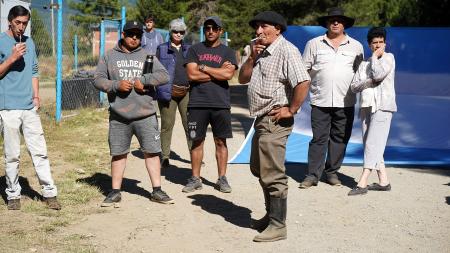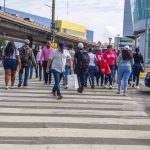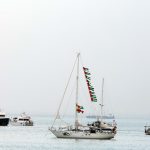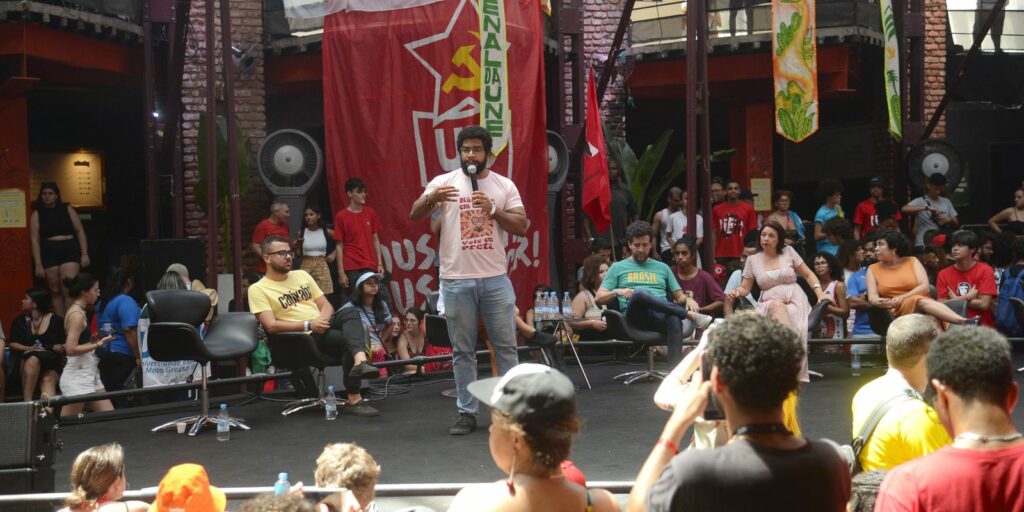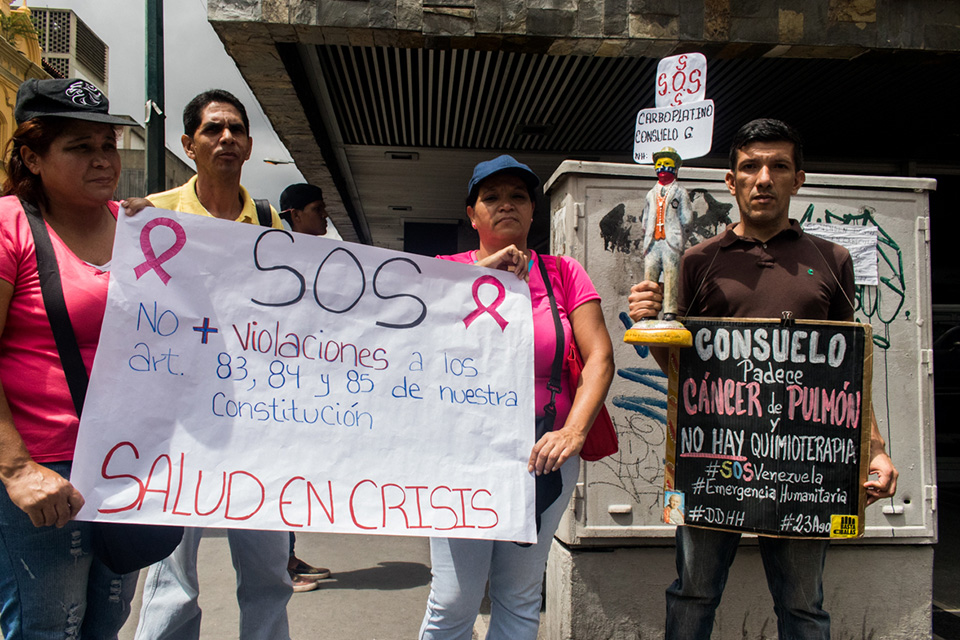“In the Andean region and in a good part of Río Negro, the police are from (Joe) Lewis, the service stations are from Lewis, the Justice and the kiosks are from Lewis, Politics and the government belong to Lewis, everything, and silence too,” the Parlasur deputy Gastón Harispe summarized to Télam. to put into words what the name of the English tycoon means in that unrepeatable landscape of Argentina.
With that phrase, the legislator from the Frente de Todos sought to reflect what he experienced when traveling through mountain roads and almost forgotten trails to try to get closer to Lago Escondido despite the violent blockade by a group of men commanded by Pablo Puchi, owner of some land bordering Route 40 and, in fact, Lewis’s Praetorian lieutenant.
Harispe was one of the protesters of the Seventh March for Sovereignty who suffered the most blows by Puchi’s men, some mounted and others on foot; He even lost consciousness when he received an impact on the temple, and when he woke up he was still more than dazed while discovering that he “was surrounded by horses,” according to what he reconstructed when talking to this agency.
“It is a place that Lewis governs. Even the judges in Bariloche are very afraid of him”Gaston Harispe
The Mercosur parliamentarian assured Télam that during the week that passed between El Bolsón, the intersection of Route 40 with the Tacuifí road, the El Foyel area and the semi-hidden footprints, he perceived that some residents do not make any effort to hide the fear that Lewis generates in them and all the pole of power that the businessman was building in that part of Patagonia.
But fear, according to Harispe, also seeps into the very headquarters of the Bariloche Courts, among qualified officials of the Judiciary who are supposed to enforce the laws and protect constitutional rights.
“It is a place that Lewis governs. Even the judges in Bariloche are very afraid of him. I verified it by talking to one of them, and among the residents I was able to experience the anger and terror they have for him, both at the same time, because for a long time an economic, media, judicial and institutional apparatus has been in operation for years”, described Harispe about what he defined as a kind of “parallel state”.
But there are also, he said, those who “live in impunity knowing that they are protected by Lewis, like this Puchi.”

The Tuicifí road, the center of the dispute
For the participants of the March, this combination of contradictory sensations multiplied when walking in the countryside, along several kilometers and parallel to the Tacuifí road, the access road that in Mapuche means “hello, so long”.
For more than 15 years, this road has become the center of the judicial dispute for the right to see Lago Escondido, the increasingly famous 7-square-kilometre mirror of water that stretches between Foyel and the border with Chile.
In the vicinity of that Patagonian beauty difficult to compare, with mountains, lakes, colors and streams, forests, skies and peace, Lewis built a mansion that is a secret destination for VIP tourism and whose enormous tracts of land were acquired -because it is an area border- in suspicious negotiations during the ’90s.

This postcard, between bucolic and paradisiacal, contrasts with the enormous iron gate that was placed on the Camino de Tacuifí to prevent its transit to the Lake and that warns without diplomacy or euphemisms that this access is prohibited because, as the poster indicates , it is “prohibited to pass, private property”.
That gate becomes a trench every summer that must be defended at any cost. for the laborers, farm workers and baqueanos who live in the region and who, if necessary, resort to violence on the orders of the rancher Puchi.
This week, following an indication from the latter, the beret riders threw stones and whips, kicked and used sticks, and also dropped the reins to throw their horses at a group of eight protesters who had managed to enter the Tacuifí by making a detour by a half-lost track, almost hidden at 500 meters.
This week, the beret riders threw stones and whips, kicked and used sticks, and also dropped the reins to throw their horses at a group of eight protesters who had managed to enter the Tacuifí by making a detour along a half-lost trail.

It didn’t take long for the media to go viral. gauchos with cell phones and carrying pepper spray that they made the horses stamp their feet to generate a curtain of earth while they cowardly punished eight unarmed demonstrators who tried to defend themselves with the Argentine flag: those beaten, they would recount after the shock, felt like foreigners on the ground itself.
Among the beaten demonstrators was the bloody face of a young woman, Celeste Fierro, leader of the Socialist Workers Movement (MST).
“The aggression I suffered, so brutal and planned, shows the criminal actions not of gauchos but of thugs hired by Lewis, of a parallel State that acts in collusion with the police forces that let them do it”he pointed out in dialogue with Télam.
The MST leader agreed with the other victims that the episode of violence will not stop the mobilization that takes place every year to demand sovereignty and free passage to the Lake. “We are not afraid of Lewis. We denounced his attack throughout the country. I am prepared to continue in this fight until the end, to return as many times as necessary,” she said.

Fierro, along with Harispe and other March participants such as Gabriel Berrozpe and Joel Sverdlik, also badly beaten, made a detour that allowed them to enter the blocked section of Tacuifí and that, he commented, is what “made them savagely angry.”
“Let them know that we are going to re-enter because Lago Escondido belongs to everyone; it is not private and less than an English tycoon,” he promised, and as a final balance he added: “Our presence made it possible to once again make visible that there is a British enclave protected by political and judicial power and by media corporations. We are going to continue the fight to achieve the opening of the road to the Lake and for Lewis to leave Patagonia”.
This year, the expedition for sovereignty to that region of Patagonia brought together close to a thousand social, union and political militants from eleven provinces. In the networks, however, they called them “porteños”, “choriplaneros”, “planeros”. Another of the phrases with which they sought to address the hatred was “they don’t work.”
The organizers, in any case, already anticipated that in the summer of 2024 there will be a new edition of the march: the horizon to which they aspire is that Argentine democracy assumes the question of sovereignty and that the public powers finally put a brake on the Lewis in Río Negro, the Benetton in Santa Cruz or the Douglas Tompkins in Corrientes.
“Let them know that we are going to re-enter because Lago Escondido belongs to everyone; it is not private and less than an English magnate”Celeste Fierro

